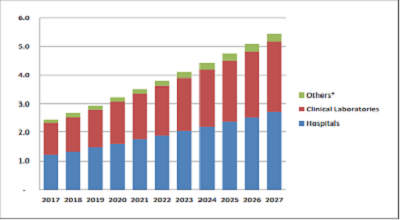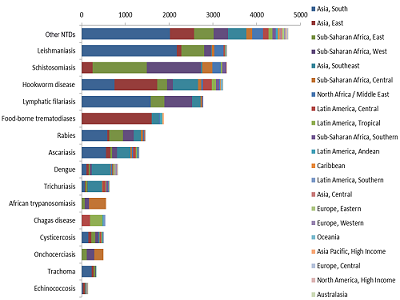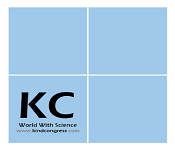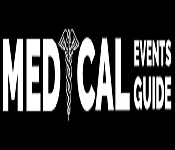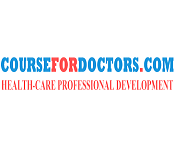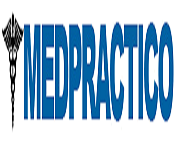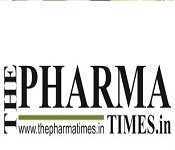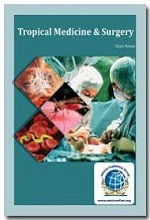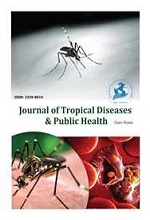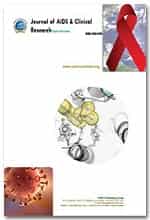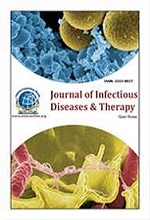Theme:
Tropical Medicine2019
 Conference Series takes the immense Pleasure to invite participants from all over the world to attend the "8th International Conference on Tropical Medicine and Infectious Diseases (Tropical Conference Medicine 2019)”, to be held in Tokyo, Japan during September 23-24, 2019. Tropical Medicine Conference program focuses on “Innovative Research and Future Trends in Tropical Medicine and Infectious Diseases”. In collaboration with its Editorial Board Members along with institutional partners the Tropical Medicine Conference includes various people presenting their research in the form of Keynote speeches, Oral Presentations, Video presentations, Symposia, Workshops, Poster Presentations, E-Posters and Exhibitions covering a range of topics and important issues which may be helpful for us all from the research to the practical implementations.
Conference Series takes the immense Pleasure to invite participants from all over the world to attend the "8th International Conference on Tropical Medicine and Infectious Diseases (Tropical Conference Medicine 2019)”, to be held in Tokyo, Japan during September 23-24, 2019. Tropical Medicine Conference program focuses on “Innovative Research and Future Trends in Tropical Medicine and Infectious Diseases”. In collaboration with its Editorial Board Members along with institutional partners the Tropical Medicine Conference includes various people presenting their research in the form of Keynote speeches, Oral Presentations, Video presentations, Symposia, Workshops, Poster Presentations, E-Posters and Exhibitions covering a range of topics and important issues which may be helpful for us all from the research to the practical implementations.
Why to attend Tropical Medicine Conference?
The Tropical Medicine Conference will act as a platform for Tropical Medicine Specialist, Infectious Diseases Researchers, Scientists, Faculties, Students, Business professionals, Healthcare professionals, clinicians, researchers, academicians, foundation leaders, Infectious Diseases Associations and Societies, direct service providers, policymakers, Medical Colleges, Pharmaceutical Companies and Industries, Medical Devices Manufacturing Companies, Drug Manufacturing Companies and Industries and others related to this topic to exchange and discuss their valuable views on tracking the Tropical Medicine and Infectious Diseases related concepts.
Tropical Medicine Conference 2019 encourages various methods in the study of large disease burden and highlighting existing opportunities in the field of Public health, Tropical Medicine, Neglected Tropical Diseases, Parasitology, Epidemiology and most importantly concerning Infectious Diseases, Pediatric Infectious Diseases. Global Infectious Conferences provides the time to collaborate with industry peers and discover knowledge and resources that can be used to achieve your personal and organizational goals.
This gathering will strengthen the ideas about Tropical Medicine and Infectious Diseases and different aspects related to it. We attempt to provide a perfect stage to Researchers, Scholars, and key Speakers to share data and experiences and empower people with their deep knowledge of Human Infectious Diseases and aspire them to fight against the worldwide risk related to it.
Benefits in Tropical Medicine Conference:
- All accepted abstracts will be published in the supporting journals of the conference and Conference Book Proceeding.
- Each abstract will receive a DOI number provided by CrossRef.
- Opportunity to conduct Workshop with your team members.
- One to One Interaction with Keynote Speakers, OCM and Eminent personalities for the future course of work.
- Opportunity as chair a session at Tropical Medicine Conference 2019.
- Certification by the organizing committee.
- Individual keynote Page will be created to get more visibility for your scientific research on Tropical Medicine Conference Website.
- Huge Benefits on Group Registration and much more.
Why Tropical Medicine Conference 2019?
- Poster and Paper presentations and world-class Exhibitions.
- Opportunities to gain a deeper understanding of the topic.
- Intensifying Interactive knowledge.
- Meet Academics and Industrial professionals to get inspired.
- Great credits for the work in progress.
- Valuable talks and symposiums from renowned speakers.
- Meaningful sessions and accomplishments.
With members from over the world focused on learning about Tropical Medicine and its advances; this is your best opportunity to reach the largest assemblage of participants from the Disease biology community. Conduct presentations, distribute information, meet with current and potential scientists, make a splash with new advancements and developments in Infectious Diseases, and receive name recognition at this 2-days event.
Target Audience @Tropical Medicine Conference 2019:
- Microbiologists
- Pathologists
- Epidemiologists
- Dermatologists
- Allergists
- Immunologists
- Pediatricians
- Physicians
- Pharmacists
- Neurologists
- Infection Prevention and Infection Control Specialists
- Academic and Health care Professionals
- Students
- Research Associates
- Health Care Associations & Societies
- Medical & Pharmacy Companies
- Medical Devices and drug Manufacturing Companies
- Laboratory Technicians and Diagnostic Companies
- Business Entrepreneurs and Industrialists
Introduction to Tropical Medicine & Infectious Diseases:
Tropical Diseases are responsible for millions of deaths, especially in the Tropical regions of the World and one-sixth of the world population is infected with Neglected Tropical Diseases and an additional two billion are at risk. Approximately half of the world population is under the risk of being exposed to infection with Tropical Diseases causing Micro-organisms.
Many of the major Tropical Diseases include Buruli ulcer, Chagas Diseases, Dengue, Malaria, typhoid, yellow fever, and many others. These diseases mainly are spread in the region of Africa, Asia and the western Pacific. Various means for the spread of these diseases are infections (Bacterial, Viral and fungal). Most cases affect the subtropical region except Japan, China and Australia. Majority of cases are in western and central Africa. As per the projection of various tropical medicine journals and the WHO these diseases have been reported to effects most than 33 countries in the region of Africa and western Asia.
Infectious Diseases:
Infectious Diseases square measure disorders caused by organisms like microorganism, viruses, fungi or parasites. Infectious diseases are also of, foodborne, vector-borne, airborne in Related as furthermore in plants and animals. Infectious diseases essentially emphasize on the pathological process of the microorganism and their therapeutic measures, synthesize of branches of particularly clinical and diagnostic biology that deals with the cure hindrance of the Infectious Diseases It represents associate degree progressively necessary for human morbidity and mortality reason throughout the globe. The Immunizing agent development may be nice importance’s in terms of world heal.
Infectious diseases kill more people throughout the world. These infections are mainly caused by germs. We can get infected by touching, eating, drinking or breathing something. Germs can also spread through animal and insect bites, sexual contact. Some of the diseases like measles and chickenpox can also be prevented by vaccines. Hand washing is also used to prevent Infectious Diseases.
Tropical Medicine:
Physicians in this field diagnose and treat a range of diseases and ailments. Most infections they cope with are endemic to the tropics. A few of the most well-known include malaria, HIV/AIDS, and tuberculosis. They must be knowledgeable within the eighteen lesser best-known neglected tropical diseases, which include Chagas disease, rabies, and dengue. Poor living conditions in underdeveloped tropical countries have lead to a rising variety of non-communicable diseases. These diseases embrace cancer and disorder, which, in the past, have been more of a worry in developed countries. Physicians trained in tropical medicine should even be ready to diagnose and treat these diseases.
Tropical Medicine Conference 2019 is one of the Medical meetings which will be visited by all the research experts, medical educators, research fellow, postgraduates, affiliations, business meanders and various others medical experts from various fields one of them are travel medicine to comes under a solitary rooftop and discuss various ideas and their researches . Tropical Medicine society meetings will help in B2B teaming up, frameworks organization, amidst specialists and academicians from all corners of the globe.
Track 1: Tropical Medicine and Immunization Vaccination
A vaccine is a suspension of the whole or fractionated bacteria or viruses that are rendered non-pathogenic. Vaccination has been extremely effective in preventing various serious infections that were once fatal and now have been eliminated. However, these infections still occur in parts of the under-developed and developing nations. Vaccines are frequently unavailable in developing countries. Each year, millions of people die from drug-treatable vaccine-preventable diseases. Furthermore, successful vaccines have yet to be developed for major global diseases such as tuberculosis. In addition, technologies that are used to develop and manufacture vaccines are often outdated and are not easily adaptable for rapidly responding to disease outbreaks, such as influenza.
Related Conferences:
10th International Conference on Emerging Infectious Diseases, December 02-03, 2019 Barcelona, Spain; 8th International Conference on Tropical Medicine, Infectious Diseases & Public Health, July 29-30, 2019, Bangkok, Thailand; 14th International Conference on Infectious Diseases, Prevention and Control, March 21-22, 2019, Dubai, UAE.
Track 2: Neglected Tropical Infections and Parasitic Infections
Neglected tropical diseases are traditionally neglected at the community, national, and international levels and are endemic in several under-developed and developing countries. Neglected tropical diseases are caused by bacteria, virus, parasites, helminths, protozoans etc. These including liquid body substance filariasis, onchocerciasis, schistosomiasis, and soil-transmitted helminthiasis, represent a heavy burden to public health. Unlike many public-health risks, such as malaria, tuberculosis, and HIV, the burden of human suffering caused by neglected tropical diseases remains poorly recognized by the global public-health community.
Related Conferences:
7th Annual Conference on Parasitology & Infectious Diseases, November 18-19, 2019 Johannesburg, South Africa; 6th International Conference on Tropical Medicine and Infectious Diseases, January 28-29, 2019 Barcelona, Spain; 3rd International Conference on Worldwide Infectious Diseases, October 21 - 22, 2019, London, UK.
Track 3: NTDs Causes, Treatments and Preventive Care
POC diagnostics deliver rapid information for patient care. The common platform is the lateral flow immunoassay. Recently, emerging molecular diagnostics have met requirements for speed, low cost, and ease of use for POC applications. A major driver for POC development is the ability to diagnose infectious diseases at sites with limited infrastructure. The potential use in both wealthy and resource-limited settings has fueled an intense effort to build on existing technologies and to generate new technologies for the diagnosis of a broad spectrum of infectious diseases.
Related Conferences:
2nd International Conference on Tropical and Infectious Diseases, November 21-22, 2019 Bali, Indonesia; 12th Edition of International Conference on Infectious Diseases, April 22 -23, 2019, Rome, Italy; 11th World Congress of the World Society for Pediatric Infectious Diseases, November 5-8, 2019, Philippines.
Track 4: Infection Control And Public Health Awareness
Contamination counteractive action and control is required to keep the transmission of Infectious Ailments in all social insurance frameworks. These maladies are typically caused by microscopic organisms or infections and can be spread by human to human contact, a creature to human contact, human contact with a contaminated surface, airborne transmission through little beads of irresistible operators suspended noticeable all around lastly, by such regular vehicles as water or sustenance.
Related Conferences:
10th International Conference on Emerging Infectious Diseases, December 02-03, 2019 Barcelona, Spain; 8th International Conference on Tropical Medicine, Infectious Diseases & Public Health, July 29-30, 2019, Bangkok, Thailand; 14th International Conference on Infectious Diseases, Prevention and Control, March 21-22, 2019, Dubai, UAE
Track 5: HIV/AIDS and Sexually Transmitted Infections
HIV/AIDS still remains one of the most critical health challenges in the face of the world. According to reports around 36.7 million people are living with HIV and an estimated 1.8 million new infections are recorded in the year 2016. There are some certain ways through which HIV can spread from one person to another such as blood, semen, pre-seminal fluids, rectal fluids, vaginal fluids and breast milk. HIV transmission is only possible if these fluids come in contact with the mucous membrane or damaged tissue or are directly injected into the bloodstream.
Related Conferences:
7th Annual Conference on Parasitology & Infectious Diseases, November 18-19, 2019 Johannesburg, South Africa; 6th International Conference on Tropical Medicine and Infectious Diseases, January 28-29, 2019 Barcelona, Spain; 3rd International Conference on Worldwide Infectious Diseases, October 21 - 22, 2019, London, UK
Track 6: Nosocomial Infections
These infections are acquired due to the development of favourable conditions in the hospital environment, infected by a patient during a hospital visit or one developing among hospital staff. The types of microorganisms because nosocomial infections contribute about 99,000 deaths each year according to the Centers for Disease Control and Prevention. The recent survey by hospitals reports, Gram-negative infections are estimated to account for two-thirds of the 25,000 deaths each year.
Related Conferences:
2nd International Conference on Tropical and Infectious Diseases, November 21-22, 2019 Bali, Indonesia; 12th Edition of International Conference on Infectious Diseases, April 22 -23, 2019, Rome, Italy; 11th World Congress of the World Society for Pediatric Infectious Diseases, November 5-8, 2019, Philippines.
Track 7: Infectious Diseases
The diseases which are caused by a pathogenic microorganism such as a virus, bacteria, parasites, fungi come under the category of Infectious. Another category is Zoonotic diseases which are the diseases affecting animals but also infects when transmitted to humans. These diseases are transmissible from one person to another. According to a report in today’s world more than half a billion people are affected by Communicable diseases. The topic includes various kind of infection depending on the diseases causing agents and arboviral diseases.
- Parasitic and Blood Infectious Diseases
- Digestive and Respiratory Infectious Diseases
- Dermatological and Neurological Infectious Diseases
Related Conferences:
10th International Conference on Emerging Infectious Diseases, December 02-03, 2019 Barcelona, Spain; 8th International Conference on Tropical Medicine, Infectious Diseases & Public Health, July 29-30, 2019, Bangkok, Thailand; 14th International Conference on Infectious Diseases, Prevention and Control, March 21-22, 2019, Dubai, UAE
Track 8: Pediatric Infectious Diseases and their control
Childhood infections / Pediatric infections are the infections which are caused in different age group children. Pediatric infections experts take care of the infections occurring in children and the treatment methods vary for children from adults. 11 million children deaths every year are attributable to six causes: neonatal infection, diarrhoea, malaria, preterm delivery, pneumonia or lack of oxygen at birth. Some of the deaths occur from illnesses like malaria, measles or tetanus.
Related Conferences:
7th Annual Conference on Parasitology & Infectious Diseases, November 18-19, 2019 Johannesburg, South Africa; 6th International Conference on Tropical Medicine and Infectious Diseases, January 28-29, 2019 Barcelona, Spain; 3rd International Conference on Worldwide Infectious Diseases, October 21 - 22, 2019, London, UK
Track 9: Gastrointestinal & Urinary Tract Infections
Gastrointestinal and Urinary Tract contaminations are viral, bacterial or parasitic diseases. Gastrointestinal Infection causes gastroenteritis, an irritation of the gastrointestinal tract including both the stomach and the small digestive tract .Gastrointestinal contaminations can be brought about by an extensive number of microorganisms, including Adenovirus ,Campylobacter, Clostridium difficile , Escherichia coli and Urinary Tract Infection characterizes that your bladder and kidneys and the cylinders that interface them. At the point when germs get into the body they can cause a contamination. The greater part of the urinary tract contaminations (UTIs) are bladder diseases.
Related Conferences:
2nd International Conference on Tropical and Infectious Diseases, November 21-22, 2019 Bali, Indonesia; 12th Edition of International Conference on Infectious Diseases, April 22 -23, 2019, Rome, Italy; 11th World Congress of the World Society for Pediatric Infectious Diseases, November 5-8, 2019, Philippines.
Track 10: Immunology of Infections
Clinical Immunology associated with studies of diseases which are caused due to disorders of the immune system i.e.., abnormal growth of any cellular tissues of the system, hypersensitivities such as in asthma, immune system failure and other allergies. It also includes the diseases of other systems, where immune reaction plays a vital role in the clinical aspects and pathology. Clinical Immunology divided into two categories: autoimmunity host body own itself attacks the immune system in the other hand Immunodeficiency is a category in which inadequate response is attained by the immune system.
Related Conferences:
10th International Conference on Emerging Infectious Diseases, December 02-03, 2019 Barcelona, Spain; 8th International Conference on Tropical Medicine, Infectious Diseases & Public Health, July 29-30, 2019, Bangkok, Thailand; 14th International Conference on Infectious Diseases, Prevention and Control, March 21-22, 2019, Dubai, UAE
Track 11: Neuro-Infectious Diseases
Neurological infections are the infectious diseases which are observed in the Nervous system. Viral and immune-mediated disorders of the nervous system are the most challenging neurological infections. The most common neurological disorders are multiple sclerosis and HIV. In spite of noteworthy advancements in the treatment of infectious diseases; central nervous system (CNS) infections still remain a major challenge. They are frequently difficult to diagnose, and treatments are either insufficient or non-existent. Infections can be categorized as acute or chronic.
Related Conferences:
7th Annual Conference on Parasitology & Infectious Diseases, November 18-19, 2019 Johannesburg, South Africa; 6th International Conference on Tropical Medicine and Infectious Diseases, January 28-29, 2019 Barcelona, Spain; 3rd International Conference on Worldwide Infectious Diseases, October 21 - 22, 2019, London, UK
Track 12: Practical Aspects: Tropical Medicine and International Health
Global Health refers to the health of populaces everywhere throughout the world. It is about overall well-being enhancement and security against worldwide dangers that disregard national borders. With the high rate of Infectious Diseases occurrences over the Tropical area, there is increasingly more necessity of Medicine and new preventive measure particularly in the Under created nations. As per a report distributed in exceedingly regarded diary of medication, in tropical locales in excess of a billion people (around one-6th of the total populace) are experiencing Tropical Diseases.
Related Conferences:
2nd International Conference on Tropical and Infectious Diseases, November 21-22, 2019 Bali, Indonesia; 12th Edition of International Conference on Infectious Diseases, April 22 -23, 2019, Rome, Italy; 11th World Congress of the World Society for Pediatric Infectious Diseases, November 5-8, 2019, Philippines.
Track 13: Infections Caused due to Parasites
Parasitology essentially refers to the study of connection among parasites and their hosts. Parasites utilize human or creatures as hosts. The hosts give the best possible condition to survive the parasites. For tropical drug look into parasitology is an imperative field. Different parasites, for example, infections, microorganisms, worms and so forth are the causative living being for Infectious Diseases in this way this field turn into a critical part to think about in regard to Infectious Diseases. This is the reason to incorporate this session in the Conference.
Related Conferences:
10th International Conference on Emerging Infectious Diseases, December 02-03, 2019 Barcelona, Spain; 8th International Conference on Tropical Medicine, Infectious Diseases & Public Health, July 29-30, 2019, Bangkok, Thailand; 14th International Conference on Infectious Diseases, Prevention and Control, March 21-22, 2019, Dubai, UAE
Track 14: Tropical Diseases and Neonatal Infections
It is a branch of internal medicine which deals with heart disorders as well as the abnormalities in the parts of the circulatory system. This field includes medical diagnosis and treatment of congenital heart defects, heart failure, coronary artery disease, valvular heart disease and electrophysiology. Cardiologists are the physicians who specialize in this field of medicine.
Related Conferences:
7th Annual Conference on Parasitology & Infectious Diseases, November 18-19, 2019 Johannesburg, South Africa; 6th International Conference on Tropical Medicine and Infectious Diseases, January 28-29, 2019 Barcelona, Spain; 3rd International Conference on Worldwide Infectious Diseases, October 21 - 22, 2019, London, UK
Track 15: Treatment ,Prevention & Patient Care
Infectious diseases of animals are a major hazard to earthly animal health and welfare and their effective control is necessary for agronomic health, for defending and procuring national and international food supplies and for mitigating rural poverty in developing countries. Some catastrophic livestock diseases are regional in many parts of the world and threats from old and new pathogens continue to rise, with changes to worldwide climate, agricultural approaches and anthropology presenting conditions that are especially supportive for the spread of arthropod-borne diseases into new geographical fields.
Related Conferences:
2nd International Conference on Tropical and Infectious Diseases, November 21-22, 2019 Bali, Indonesia; 12th Edition of International Conference on Infectious Diseases, April 22 -23, 2019, Rome, Italy; 11th World Congress of the World Society for Pediatric Infectious Diseases, November 5-8, 2019, Philippines.
Track 16: Prevention of Bacterial Infectious Diseases
Bacteria are microscopic single-celled organisms that live almost everywhere. Bacteria live in every climate and location on earth. Some are airborne while others live in water or soil. Bacteria live on and inside plants, animals, and people. The word "bacteria" has a negative connotation, but bacteria perform many vital functions for organisms and in the environment.
Related Conferences:
10th International Conference on Emerging Infectious Diseases, December 02-03, 2019 Barcelona, Spain; 8th International Conference on Tropical Medicine, Infectious Diseases & Public Health, July 29-30, 2019, Bangkok, Thailand; 14th International Conference on Infectious Diseases, Prevention and Control, March 21-22, 2019, Dubai, UAE
Track 17: Fungal Infections and Challenges
Fungal Infectious Diseases are often caused by fungi that are common in the environment. Most fungi are not dangerous, but some types can be harmful to health. Mild fungal skin diseases can look like a rash and are very common. Fungal diseases in the lungs are often similar to other illnesses such as the flu or tuberculosis. Some fungal infections like fungal meningitis and bloodstream infections are less common than skin and lung infections but can be deadly.
Related Conferences:
7th Annual Conference on Parasitology & Infectious Diseases, November 18-19, 2019 Johannesburg, South Africa; 6th International Conference on Tropical Medicine and Infectious Diseases, January 28-29, 2019 Barcelona, Spain; 3rd International Conference on Worldwide Infectious Diseases, October 21 - 22, 2019, London, UK
Track 18: Blood infectious Diseases
Germs can cause infection in human blood and diseases are known as bloodborne pathogens. The most common and dangerous germs spread through blood within the hospital are viral hepatitis B and hepatitis c virus. These viruses cause infections and liver injury. This virus causes AIDS. Organisms such as bacteria, viruses, prions, and parasites will be transmitted through blood transfusions.
Related Conferences:
2nd International Conference on Tropical and Infectious Diseases, November 21-22, 2019 Bali, Indonesia; 12th Edition of International Conference on Infectious Diseases, April 22 -23, 2019, Rome, Italy; 11th World Congress of the World Society for Pediatric Infectious Diseases, November 5-8, 2019, Philippines.
Track 19: New Prospectives in Vaccines & Antibiotics
Vaccines are the products that can produce immunity from disease and can be administered through needle injections, by mouth and by aerosol. Vaccination is the injection of a killed or weakened organism that produces immunity in the body against that organism. Antimicrobials/ antibiotics/ antibacterial are the drugs used in the treatment and prevention of bacterial infections. They may either kill or inhibit the growth of bacteria. Few antibiotics possess antiprotozoal activity. Antibiotics are not effective against viruses such as the common cold or influenza and their inappropriate use allows the emergence of resistant organisms.
Related Conferences:
10th International Conference on Emerging Infectious Diseases, December 02-03, 2019 Barcelona, Spain; 8th International Conference on Tropical Medicine, Infectious Diseases & Public Health, July 29-30, 2019, Bangkok, Thailand; 14th International Conference on Infectious Diseases, Prevention and Control, March 21-22, 2019, Dubai, UAE
Track 20: Diagnosis and Treatment of Infectious Diseases
Medical diagnosis is the process of determining the type of disease or condition that explains a person's symptoms and signs. Laboratory tests may identify the organisms directly by visualizing the organism on culture by a microscope or indirectly identifying antibodies to the organism. General types of tests include microscopy, culture and immunologic tests i:e; agglutination tests such as western blot, latex agglutination, enzyme immunoassays, complement fixation tests, precipitation tests and nucleic acid/ no- nucleic acid-based identification methods.
Related Conferences:
7th Annual Conference on Parasitology & Infectious Diseases, November 18-19, 2019 Johannesburg, South Africa; 6th International Conference on Tropical Medicine and Infectious Diseases, January 28-29, 2019 Barcelona, Spain; 3rd International Conference on Worldwide Infectious Diseases, October 21 - 22, 2019, London, UK
Track 21: Frontiers in Antimicrobial Ressistance
Antimicrobials/antibiotics/antibacterial are the drugs used in the treatment and prevention of bacterial infections like strep throat, urinary tract infections and tuberculosis. They may either completely kill or inhibit the growth of bacteria. Few antibiotics also possess antiprotozoal activity. Antibiotics are not effective against viral diseases such as the common cold or influenza and their inappropriate may allow the emergence of resistant organisms.
Related Conferences:
2nd International Conference on Tropical and Infectious Diseases, November 21-22, 2019 Bali, Indonesia; 12th Edition of International Conference on Infectious Diseases, April 22 -23, 2019, Rome, Italy; 11th World Congress of the World Society for Pediatric Infectious Diseases, November 5-8, 2019, Philippines.
Track 22: Infectious Diseases Epidemiology
Infectious diseases continue to have a major impact on the health of communities around the globe from the world HIV and tuberculosis (TB) epidemics, to the threat of resistant bacteria, to the challenge of emerging and newly identified pathogens. All compel the need for new ways to detect such pathogens, to understand their pathogenesis, and to devise effective interventions for their prevention and control. Infectious Disease Epidemiology collections of domestic and global works on the epidemiology of emerging and re-emerging infections, world infectious disease threats, disease surveillance, disease detection, vaccines development and other methods of prevention, various clinical trials, and the effect of infectious pathogens in the pathogenesis of chronic non-communicable diseases, like cancer and cardiovascular diseases.
Related Conferences:
10th International Conference on Emerging Infectious Diseases, December 02-03, 2019 Barcelona, Spain; 8th International Conference on Tropical Medicine, Infectious Diseases & Public Health, July 29-30, 2019, Bangkok, Thailand; 14th International Conference on Infectious Diseases, Prevention and Control, March 21-22, 2019, Dubai, UAE
Track 23: Current Research in Viral Infectious Diseases
Viruses are like hijackers. They attack typical living cells and use them to multiply and produce other viruses like themselves. This can slaughter, damage, or change the cells and make sick. Different viruses attack certain cells in the body such as liver, respiratory system, or blood. Viruses are made of genetic material inside of a protein coating. Viruses cause common infectious diseases like common cold, flu and warts. Viruses also cause serious illnesses like HIV, Ebola and smallpox. Vaccines can help in preventing many viral diseases.
Related Conferences:
7th Annual Conference on Parasitology & Infectious Diseases, November 18-19, 2019 Johannesburg, South Africa; 6th International Conference on Tropical Medicine and Infectious Diseases, January 28-29, 2019 Barcelona, Spain; 3rd International Conference on Worldwide Infectious Diseases, October 21 - 22, 2019, London, UK
Track 24: Ebola and Zika Viral Infections
Ebola viral infection is caused by a virus transmitted through body fluids and through the air. It occurs rarely but it is very lethal which results in death and several outbreaks. Ebola virus disease symptoms are very severe which appears in 2-3 days. Ebola primary symptoms include fever, sore throat, muscular pain and headaches then followed by vomiting, diarrhoea, rash, decreased function of the liver and kidneys then the loss of blood internally and externally finally leading to low blood pressure and fluid loss resulting in death.
Related Conferences:
2nd International Conference on Tropical and Infectious Diseases, November 21-22, 2019 Bali, Indonesia; 12th Edition of International Conference on Infectious Diseases, April 22 -23, 2019, Rome, Italy; 11th World Congress of the World Society for Pediatric Infectious Diseases, November 5-8, 2019, Philippines.
Track 25: Pneumonia and Respiratory Tract Infections
Pneumonia will aim seriousness from delicate to severe. It is most serious for infants and young kids, folks older than age sixty five, and other people with health issues or weakened immune systems. The signs and symptoms of respiratory disorder vary from gentle to severe, looking on factors like the kind of germ inflicting the infection, and your age and overall health. Mild signs and symptoms usually are almost like those of a cold or influenza, however they last longer. Respiratory tract infection refers to any of variety of infectious diseases involving the tract. An infection of this kind is often additional classified as an upper tract infection or a lower tract infection
Related Conferences:
10th International Conference on Emerging Infectious Diseases, December 02-03, 2019 Barcelona, Spain; 8th International Conference on Tropical Medicine, Infectious Diseases & Public Health, July 29-30, 2019, Bangkok, Thailand; 14th International Conference on Infectious Diseases, Prevention and Control, March 21-22, 2019, Dubai, UAE
Track 26: Dental and Oral Infectious Diseases
Oral infections are one of the most common diseases in humans. The two most common oral infections are periodontal disease and caries ailment. Dental caries is the most well-known chronic disease of adolescence and is greatly neglected among youngsters. Periodontal illness is the most widely recognized infectious disease of adults. At least 1/3 of the population is affected by chronic periodontitis, a bacterially instigated destruction of the attachment of the tooth to the bone. Non-disposable things like dental tools should be cleaned and disinfected between patients.
Related Conferences:
7th Annual Conference on Parasitology & Infectious Diseases, November 18-19, 2019 Johannesburg, South Africa; 6th International Conference on Tropical Medicine and Infectious Diseases, January 28-29, 2019 Barcelona, Spain; 3rd International Conference on Worldwide Infectious Diseases, October 21 - 22, 2019, London, UK
Infectious Disease Market Insights
The market for infectious disease molecular diagnostics tests incorporates reference research centres, hospitals, blood banks. Size is predicted to grow at 9.42% CAGR from 2018 to 2023 and it is determined that the Middle East and Africa market was valued at USD 1.35 billion in 2018 and is depended upon to accomplish USD 2.12 billion by 2023.
Diagnostics of the Infectious disease includes a different technique to check for the presence of a foreign antigen/organism with the assistance of numerous diagnostic tools. Conditions of the Infectious disease are highly widespread in underdeveloped regions due to the lack of awareness for individual cleanliness, minimal health care expenditures, and the absence of effective physician services.
Rising instances of infectious diseases in developed economies are additionally expected to help market development. This has resulted in vitro diagnostic gadget makers to invest in emerging countries. These organizations are making efforts to develop and popularize cost-effective tools for the diagnosis of Infectious Diseases.
The infectious disease treatment market in China is witnessing steady growth owing to the increasing use of combination therapies. We forecast the growth of this market to continue through 2020. Both government and non-government bodies are increasing awareness of influenza vaccinations.
This rising awareness is driving growth for the influenza vaccine market. An increase in R&D activities for liver cirrhosis medication is a major trend expected to impact the liver disease treatment market. We expect this market to witness strong growth through 2021.
The infectious disease therapeutics market will register a CAGR of over 4% by 2023.
Increasing Prevalence of Infectious Diseases
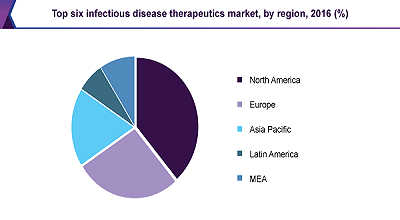
Development of novel drugs to drive growth in the market. There has been an increase in the R&D of novel drugs for the treatment of infectious diseases. Counterfeit drugs are available in low-income and developing countries. These drugs are widely available because of insufficient regulations and manufacturing control.
The Asia Pacific, Latin America and the Middle East are expected to be the potential markets in the coming years.
Major companies which play a key role in infectious disease molecular diagnostics tests market are Abbott Laboratories, Affymetrix, Inc., Becton, Dickinson and Company, Cepheid, Inc., Hologic, Inc., Life Technologies, Myriad Genetics, Inc., Qiagen N.V. and others.
Tropical Diseases:
Tropical Diseases are in charge of a large number of deaths, particularly in the Tropical districts of the World and one-6th of the total populace is contaminated with Neglected Tropical Diseases and extra two billion are in danger. The above figure demonstrates that regarding % of worldwide weight Japanese encephalitis, Leprosy, Dengue is a portion of the major Tropical Diseases.
Aside from the tropical locale, the effect of tropical infections on general well-being is around the world. The impact of tropical diseases country wise is shown below:
WHO Roadmap 2020 - The subject of this guide is "Quickening work to beat the worldwide effect of dismissed tropical sicknesses".
London Declaration for the end of Neglected Tropical Diseases - It is a collective infection annihilation program. Uniting to battle Neglected Tropical Diseases. Taking this subject Inspired by the World Health Organization's 2020 Roadmap on NTDs pharmaceutical organizations, contributors, endemic nations and non-government associations met up to sign the London Declaration on Neglected Tropical Diseases on 30 January 2012. Together, they resolved to control, take out or kill 10 maladies by 2020.
Sustainable Development Goals by WHO - As mentioned in United Nations Sustainable Development i.e. By 2030, end the epidemics of AIDS, tuberculosis, malaria and about 17 Neglected Tropical Diseases and water-borne diseases and other communicable diseases.
Major Tropical Medicine Infectious Disease Societies and Associations around the Globe:
Asia-Pacific & Middle East
- Japanese Association for Oral Infectious Disease, Tokyo
- Society of Tropical Medicine & Infectious Diseases, India
- Oxford Asia Tropical Medicine Research Network, China
- Malaysian Society of Parasitology and Tropical Medicine, Malaysia
- Pacific Center for Emerging Infectious Diseases Research, Hawaii
- Japanese society for Neuroinfectious Diseases, Japan
Europe & UK
- The International Society for Neglected Tropical Diseases, United Kingdom
- Healthcare Infection Society, London
- Liverpool School of Tropical Medicine, UK
- European Society for Immuno Deficiencies, Switzerland
- Infectious Diseases Society of Ireland, Ireland
USA & Americas
- ASTMH (American Society of Tropical Medicine and Hygiene), USA
- Infectious Diseases Society of America (IDSA), USA
- Tropical Pathology & Infectious Diseases Associations, Peru
- National School of Tropical Medicine, Texas
- Brazilian Society of Tropical Medicine, Brazil
Why Tropical Medicine Conference 2019 @Tokyo,(Japan)?
Tokyo, one of the 47 prefectures of Japan and has been the capital since 1869. The greater Tokyo Area is the most populous metropolitan area in the world. Tokyo has 39 million residents, 50% more people than any other urban area, with a $2.5 trillion economy larger than that of any other city. If it were a country I would be the 8th largest economy in the world.
Making life better for patients around the world they established an agency called Japan Agency For Medical Research and Development on April 1, 2015. It connects the most qualified practitioners, medical institutions and private-sector organizations, at home and abroad, to give clinical studies the best possible chance of succeeding. There are nearly 646 hospitals and 27,172 general clinics in Tokyo.
According to ton OCED statistics on health expenditure by country, the health expenditure by country, the health care market in Japan ranks 3rd in the world, following the USA, China. Market growth factors include the greying population and consequent increase of home-based care, and the rise of chronic diseases coming from changes in lifestyle. With respect to the percentage of senior citizens aged 65 years or older, Japan ranks top in the world.
Conference Highlights
- New Prospectives in Vaccines & Antibiotics
- Frontiers in Antimicrobial Ressistance
- Prevention of Bacterial Infectious Diseases
- Dental and Oral Infectious Diseases
- Blood infectious Diseases
- HIV/AIDS and Sexually Transmitted Infections
- Immunology of Infections
- Infection Control And Public Health Awareness
- Infectious Diseases
- Infectious Diseases Epidemiology
- Diagnosis and Treatment of Infectious Diseases
- NTDs Causes, Treatments and Preventive Care
- Neglected Tropical Diseases and Parasitic Infections
- Nosocomial Infections
- Pediatric Infectious Diseases and their Control
- Treatment ,Prevention & Patient Care
- Tropical Medicine and Immunization Vaccine
- Tropical Diseases and Neonatal Infections
- Current Research in Viral Infectious Diseases
- Gastrointestinal & Urinary Tract Infections
- Practical Aspects: Tropical Medicine and International Health
- Pneumonia and Respiratory Tract Infections
- Infections Caused due to Parasites
- Ebola and Zika Viral Infections
- Fungal Infections and Challenges
- Neuro Infectious Diseases
To share your views and research, please click here to register for the Conference.
To Collaborate Scientific Professionals around the World
| Conference Date | September 23-24, 2019 | ||
| Sponsors & Exhibitors |
|
||
| Speaker Opportunity Closed | Day 1 | ||
| Poster Opportunity Closed | Click Here to View | ||
Useful Links
Special Issues
All accepted abstracts will be published in respective Our International Journals.
- Journal of Tropical Diseases & Public Health
- Journal of Infectious Diseases & Preventive Medicine
- Tropical Medicine & Surgery
Abstracts will be provided with Digital Object Identifier by



















